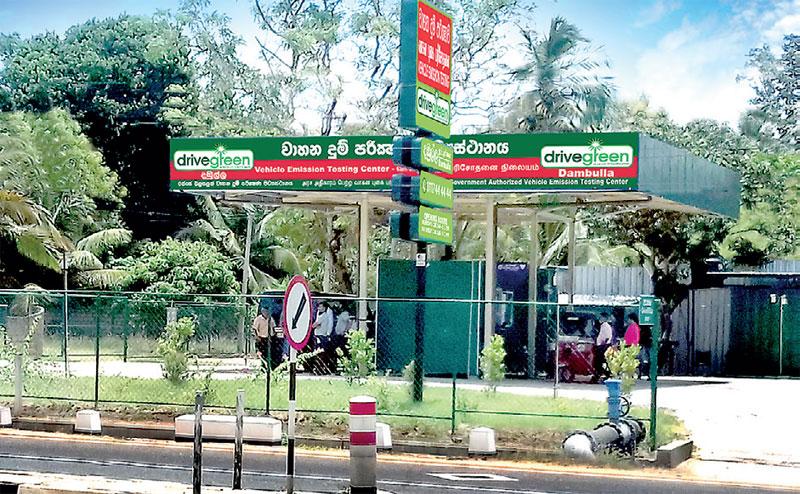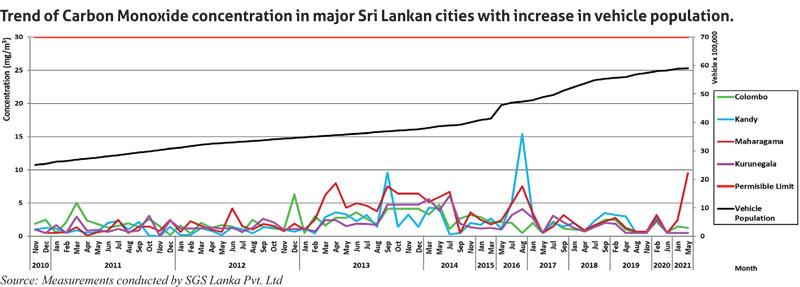Reply To:
Name - Reply Comment

September 7, has been designated as International Day of Clean Air for blue skies by the United Nations General Assembly. The event enters its second year in 2021 and the need for clean air remains as important as ever. The 2021 theme for the International Day of Clean Air for blue skies is “Healthy Air, Healthy Planet” which emphasizes the health aspects of air pollution.
The resolution emphasizes the need for the global community ‘to make joint efforts to enhance global awareness of air pollution and to improve air quality, given negative effects of air pollution on global health and sustainable development.
This special day is being observed in order to educate the public and mobilize resources to address the rising problem of air pollution, considered today as the single greatest environmental risk to human health and one of the main avoidable causes of death and disease globally.
According to WHO, air pollution cause about 7 million premature deaths worldwide every year. In the absence of aggressive intervention, the number of premature deaths resulting from ambient air pollution is estimated to increase by more than 50 per cent by 2050.
Moreover, society bears the high cost of air pollution due to the negative impacts on the economy, work productivity, healthcare costs and tourism, among others. Hence, the economic benefits of investing in air pollution control cannot be overestimated. It must also be understood that there is an economic rationale to act and cost-effective solutions are vital to address air pollution.
In Sri Lanka, air quality is mainly affected by vehicle emissions and other hazardous materials being released in to the air resulting in particle pollution that can easily contribute to a wide range of respiratory diseases.
However, it is believed that Sri Lanka’s air quality is still at a permissible level, as per national standards. The primary reason is due to the Vehicle Emission Testing programme which was officially launched in November 2008, when mandatory emission testing legislation was implemented.
From among the two companies that were selected to execute the programme, Drivegreen is the brand name of CleanCo Lanka (Pvt) Ltd., has since the commencement of the programme, proven to be a significant contributor, helping the nation to reduce the country’s air pollution caused by vehicle emissions because vehicle air pollution is the main contributor to air pollution in Sri Lanka.
“Sri Lanka has active vehicle fleet of around 6 million vehicles and out of them over 80% run on petrol while less than 20% run on diesel,” opined Surendra Perera, Deputy General Manager (Operations) at CleanCo Lanka (Pvt) Ltd. When it comes to petrol vehicles, around 20% get failed in their first emission test. Many of them fail due to poor maintenance of the vehicles. Most of these maintenance cost will be very less compared to the fuel wasted by the vehicles. ex: Cleaning air filter, cleaning spark plugs, or replaced them as per manufacturer specification[].
“If the engine undergoes proper maintenance there will be less emissions and the efficiency of the vehicle will be high. As a result engine performance will also improve. If the engine is maintained this way the user will be able to save up on a lot of fuel. Therefore even if there’s a price hike there won’t be much impact on the vehicle users. Similarly, the impact on the environment will also be controlled. Vehicles emit unburnt carbons, especially carbon monoxide which is a harmful pollutant. We have around 55.2% motorcycles and 17.8% three wheelers running on the streets. But they seldom maintain their vehicles. If they change filters, spark plugs before they are worn off, emissions could be reduced,” he added.
Drivegreen testing centers located island wide uses state-of-the-art class zero equipment and follow international testing procedures to measure emission from vehicles. Vehicle emission test is a unique and effective mechanism to detect high emitting vehicles in use, thereby playing a vital role in improving air quality in urban area
To-date the Vehicle Emission Testing programme has contributed immensely towards controlling the country’s air pollution especially in urban areas where the vehicle population is growing due to an increase in motor cycles, three wheelers and personal vehicles. According to statistics from the Central Bank, Sri Lanka’s vehicle population has grown from 2,163,123 in 2008 to 5,605,762 in 2019 vehicle emissions have remained stagnant. (See graph).
Despite this rise, the present air pollution levels remain close to 2011 levels which demonstrate that widespread emission testing have helped to preserve the Sri Lanka’s ambient air quality. Especially when compared to other South Asian countries, global studies have proved that Sri Lanka’s air quality ranks higher.
According to the prestigious Environmental Performance Index 2020 (EPI) based on research conducted by Yale and Columbia universities, Sri Lanka’s Air Quality measurement ranked high, out-performing South Asian neighbours.
Sri Lanka is ranked 91 in Air Quality according to the 2020 EPI, showcasing important strides in managing air quality. In contrast, other South Asian nations notably Bangladesh ranking 166, India 179 and Pakistan 180, lagged behind in Air Quality indicative of poor air quality in these developing countries.
